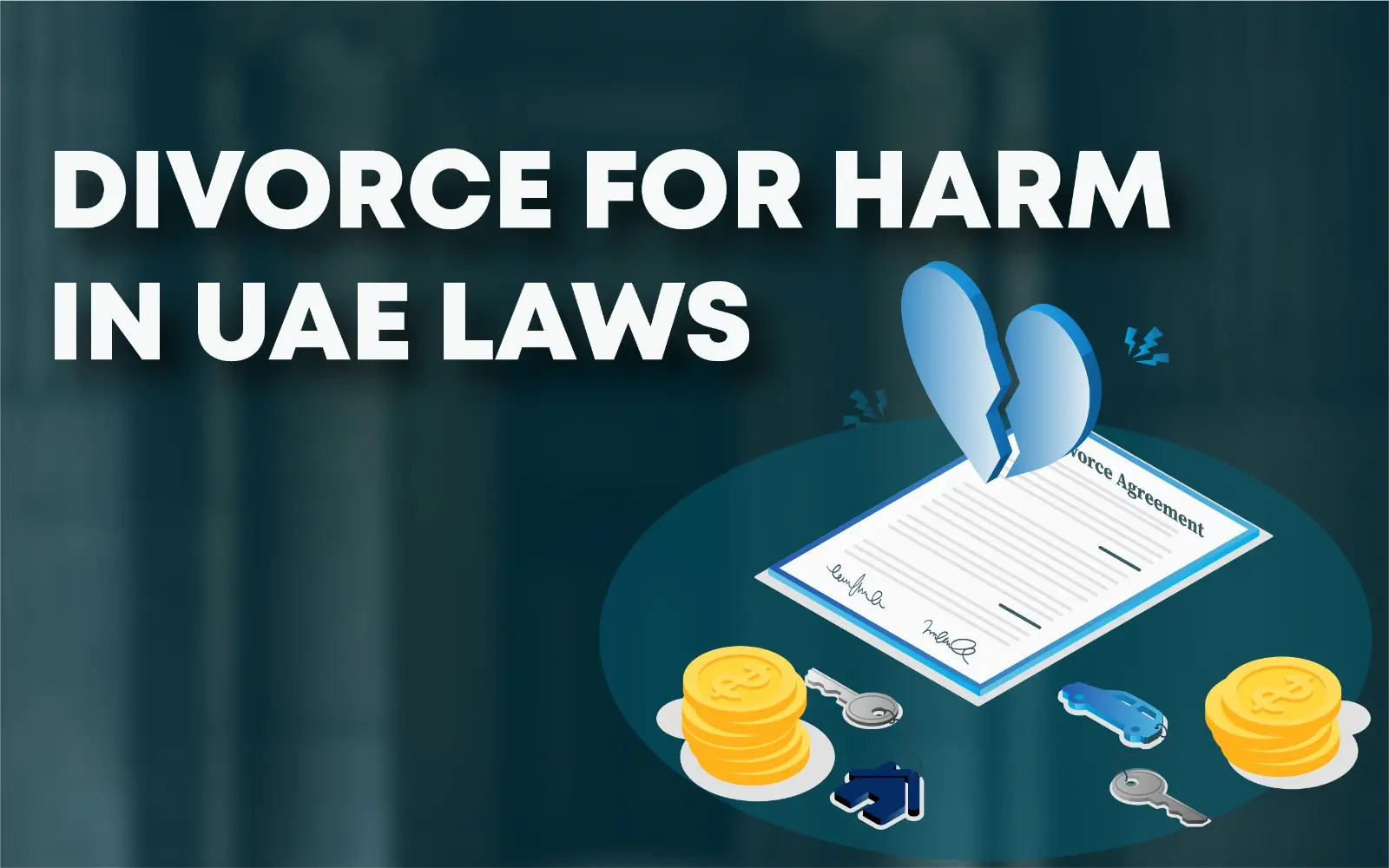Introduction
Divorce is one of the most complex and sensitive issues in UAE law and Islamic jurisprudence. The law is tasked with safeguarding the rights of spouses and providing mechanisms for resolving marital disputes fairly and equitably. In this article, we will explore the concept of divorce for harm in UAE laws and how it is approached from both a legal and Islamic perspective.
The Sharia Framework
Divorce for harm is based on Islamic principles. This concept can be summarized by the Quranic verse, “Divorce is twice. Then, either keep [her] in an acceptable manner or release [her] with good treatment” (Quran, Al-Baqarah: 229). This means that divorce is not an easy option; it should be done with flexibility and good intentions.
UAE Laws
In the UAE, personal status laws regulate divorce and define the conditions and procedures required for its execution. According to Article 117 of the Federal Personal Status Law, either spouse has the right to seek divorce if there is harm that makes the continuation of the marriage impossible. This means that issues like marital discord, mistreatment, and financial neglect can be legitimate reasons for divorce.
Moreover, Article 122 stipulates that harm must be proven through both Islamic and legal means. Testimonies can be accepted if they are properly interpreted and understood by the witness, and if evidence demonstrates the existence of harm in the lives of the spouses.
Additionally, Article 124 of the same law allows a wife to request divorce if her husband fails to provide financial support and does not possess visible assets that can cover the required expenses within a reasonable timeframe.
Expert Opinions
To gain further insights into this matter, we consulted two experts in UAE law
- Amira Saqr – A specialized lawyer and litigator in family law cases. Amira Saqr emphasized the importance of applying the law with fairness and seeking the common good of the family.
- Ahmed Saber – Head of the litigation department. Ahmed Saber highlighted the importance of verifying the actual harm and directing efforts toward reconciliation before resorting to divorce.
Conclusion
Divorce for harm, as well as issues related to marital discord and financial neglect, is a sensitive topic that requires a balance between UAE laws and Islamic principles. These legal provisions aim to protect the rights of spouses and provide a fair resolution to marital disputes. The divine wisdom behind these legislations is evident in their provision of an exit strategy for marital crises and the restoration of peace within families.
Handling such matters necessitates respect for both legal and Sharia principles and a commitment to finding moderate solutions that serve the common good while safeguarding individual rights

